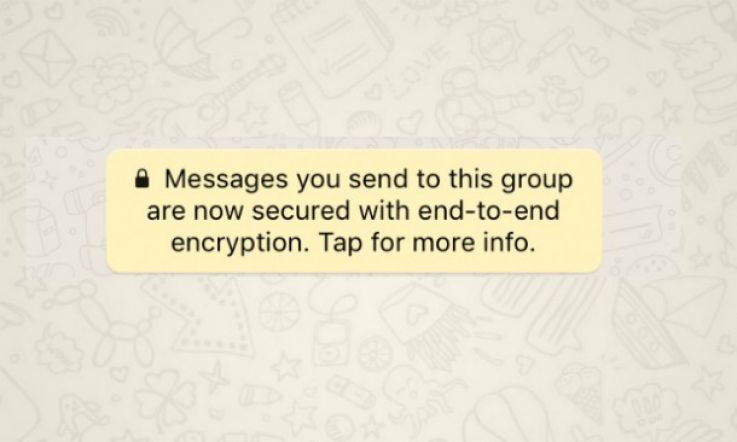Is the new WhatsApp message techno gibberish or good news?

If you're a frequent WhatsApp user you probably would have seen the little yellow message interrupt your chats in the last 24 hours, but what does it really mean?
'End-to-end encryption' may sound like you're now on an Edward Snowden watchlist, but it's actually a good thing for you and everyone you talk to via the app.
Unless you were living under a rock for the past few months, you would have heard about Apple and the FBI's ongoing battle over unlocking the phone of a mass shooter, and the conversations about security and privacy that came about because of it. Well, thanks to that case, WhatsApp are one of the first out the gate to prove to users that they're on their side and all content shared through the app is, as of yesterday, only viewable by the sender and receiver/receivers. Not even WhatsApp staff have the ability to unlock data.
Here's how WhatsApp described it: "From now on when you and your contacts use the latest version of the app, every call you make, and every message, photo, video, file, and voice message you send, is end-to-end encrypted by default, including group chats. The idea is simple: when you send a message, the only person who can read it is the person or group chat that you send that message to. No one can see inside that message. Not cybercriminals. Not hackers. Not oppressive regimes. Not even us."
As Wired put it, "WhatsApp has no way of complying with a court order demanding access to the content of any message, phone call, photo, or video traveling through its service", which should come as a relief to anyone worried about privacy and the bounds of what is and isn't readily available by governments or corporations.
Advertisement
And the best part is you don't have to do anything to activate it, it's now always on, so you and your chats and calls are safe from the prying eyes of anyone and everyone.
You can read the company's full statement on the move here.
Via Wired